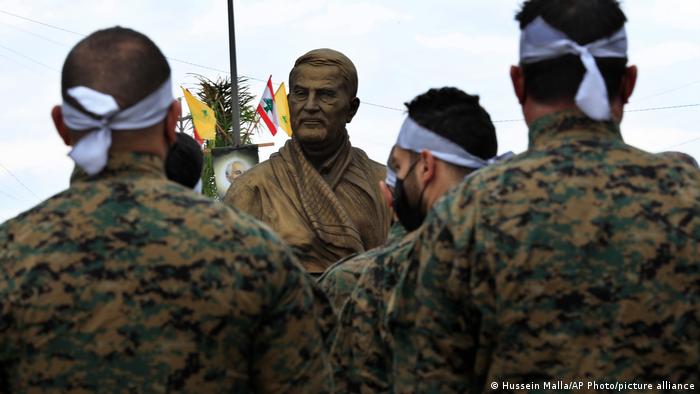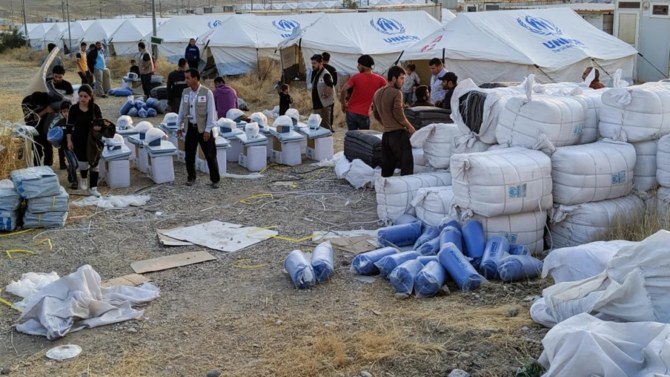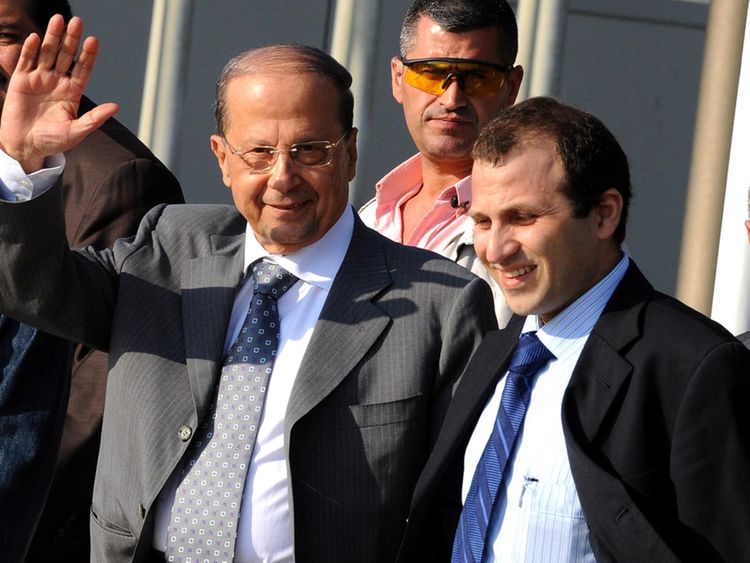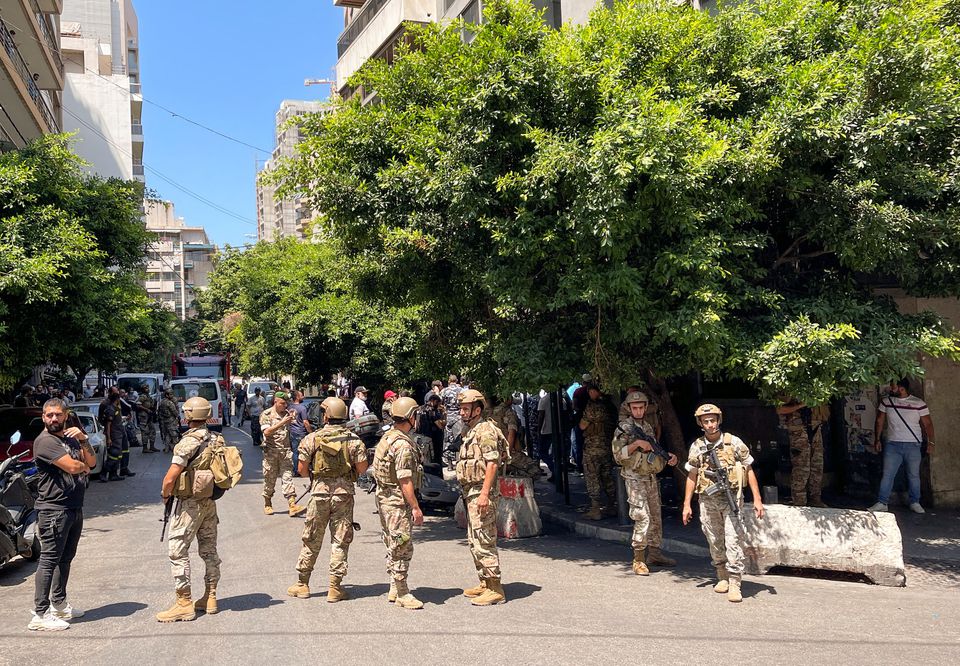
YAROUN, Lebanon, (Reuters) by Timour Azhari; – Street-side signs in the southern Lebanese village of Yaroun, the ancestral home of the suspect in the stabbing of Salman Rushdie, bear posters of Iran’s former supreme leader Ayatollah Ruhollah Khomeini who in 1989 issued a fatwa calling for the author’s death. The logo of Lebanon’s powerful, Iran-armed Hezbollah group adorns small monuments to its fighters killed during decades of wars with Israel, which borders Yaroun to the east and south. The mood in the small Lebanese village is apprehensive. Few want to speak about Friday’s attack on Rushdie or about Hadi Matar, the 24-year-old Shi’ite Muslim American suspect whose family originally hails from Yaroun, where Hezbollah has strong support.
Locals say the attack on the novelist at a public appearance in New York state has little to do with them. “There is no information… He was born abroad in America and remains there,” local official Riad al-Ridha told Reuters. “No one wants to talk about it because no one knows anything.” Matar, from New Jersey, has pleaded not guilty to attempted murder and assault. An initial law enforcement review of his social media account showed he was sympathetic to Shi’ite extremism and Iran’s Islamic Revolutionary Guard Corps (IRGC), according to NBC New York. The IRGC is a powerful faction that Washington accuses of carrying out a global extremist campaign. U.S. authorities have not offered any additional details on the investigation, including a possible motive.










